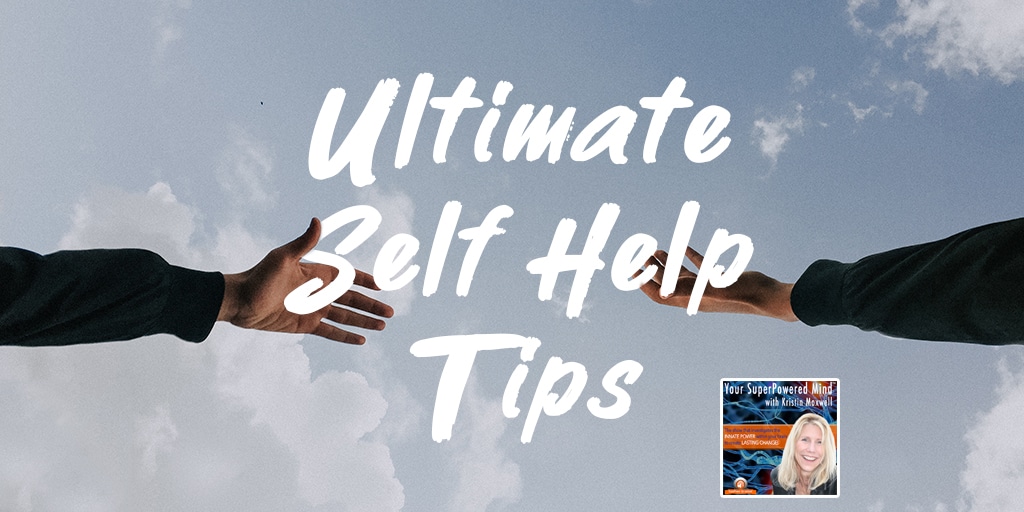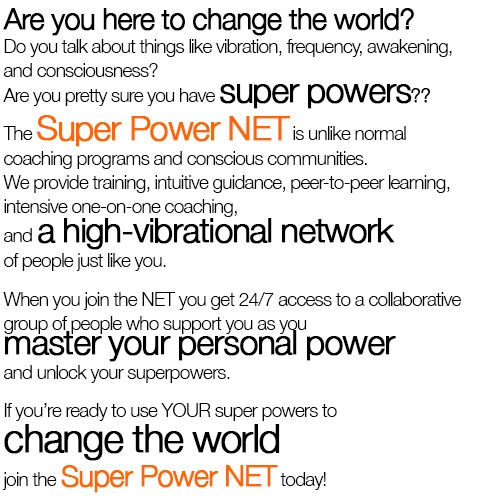
Hi everyone, welcome to Your SuperPowered Mind, I’m your host Kristin Maxwell, and in this show, we explore the process of transformation, and give you tools and strategies you can use to transform your own life.
Today we are going to be talking to Debbie Hampton about the ultimate self-help tips, how to overcome depression and anxiety. Debbie Hampton recovered from decades of unhealthy thinking and depression, a suicide attempt, and resulting brain injury to become an inspirational and educational writer on the brain, psychological, emotional, and mental health issues. She’s written for companies such as Huffington Post, mindbodygreen, and others. She’s the author of two books, Sex, Suicide and Serotonin, and Beat Depression and Anxiety by Changing Your Brain.
Debbie now teaches others how to rebuild their brains, and lives to find joy. Debbie, welcome to Your SuperPowered Mind.
Thank you, Kristin, I’m glad to be here.
I’m so glad you’re here. My first question is always, what super power did you uncover as a result of mastering your mind?

I changed my world by changing my perspective, which in turn actually changes your brain.
The super power that I discovered was number one, that I could control my mind. Maybe I was naïve, but I never really even realized that until I was later in life, in my 40s, that I could control my mind, and it didn’t control me. And the super power that came from that was, I learned that I got to create my reality, we all do, not in some fictional, illusory way, but your brain actually has a lot of subjective content when it interprets whatever happens.
And we have some control over that subjective content, and if we don’t use that control, that content is made up of our wounds and our hurts from the past, and we see the world through that, but we all have a conscious choice as to what filter we see the world through. And that was my super power, I changed my world by changing my perspective, which in turn actually changes your brain.
Wow, you just said about a million life-changing things, realizations, right in there. That concept that what our reality is, is a reflection of how we are interpreting what’s happening to us, and the idea that we see the world through the perspective of our hurts and our past unless we consciously change that. And that you get to create your reality. That’s a lot, you have a lot of super powers.
Well, I like to it to Dorothy in the Wizard of Oz, where I have on the ruby slippers, we all do. The whole time, and never even realized it, we’re all born with these super powered brains, but we never bother to read their users manual and learn how to operate it, and when we do, it changes our lives. But we all can.
Wow, perfect, and I so am wanting to get into some of what you teach people, about how to learn how to operate your brain, but you could tell the listeners a little bit about your background because you do know depression and anxiety from your past.
Yeah, I would say, like everybody else, nobody is born with a depressed brain. Depression is the consequence of life, and you may be born with a brain that is more susceptible to depression, which mine was, because of family history and patterns that I was taught, emotional patterns, and those kinds of things. But as life went on I became more and more depressed, I married my high school sweetheart, and we were married for 18 years. The marriage ended in a horrible, horrible divorce, that was so ugly that it made divorce court and the gossip magazines look tame.
And two years before the marriage ended, I took care of my brother for two years, and my brother was 10 months older than me, so my mother dressed us as twins, and we were really close, he was my best friend in the world. But I took care of him as he died of AIDS.
Wow.
You’ve heard of caregivers, and how hard that is. So, that took a tool, the divorce took a toll, and before the divorce and that there were miscarriages, there were affairs on the part of my ex-husband. And I mean just life, life just piled on one thing after another, and I didn’t have the coping mechanisms, nor had a lot of the resilience to weather these things. About three years after the divorce I had moved with my two sons to North Carolina, by myself, and the ex-husband who is now a millionaire and used his money to harass me non-stop in the courts.
But he had filed another lawsuit against me, and a relationship that had been going on for years ended, my boyfriend broke up with me. So, not having any coping skills and this being one more thing on the load, on my back, I tried to commit suicide. I was serious, I took over 80 pills, and most prescription brain drugs, alcohol, and I wasn’t found for hours.
Wow.
And everything I took went through my system, so needless to say, I ended up in the hospital in a coma for a week, and when I woke up I couldn’t speak, my hands shook constantly, I had no memory. I didn’t know my second son had been born, I didn’t know I’d gotten divorced. It seems like I got back to a period before all of the hurts, but anyway, to make a long, sad story short, it took years to recover and in recovering I learned about my brain. And I learned how to rehabilitate my brain, and I learned how to direct and guide my brain.

That is the power we all have, to shape our brains and our realities.
There’s a concept that is fairly recent that is called neuroplasticity, and neuroplasticity means that your brain changes both forms, and functionality according to the input. They used to believe that your brain was hardwired as an adult and that only went through critical growth periods as a child, but they now know for sure, that your brain changes until the day you die and it changes based on input. And that’s the external input and internal input.
Right, which is..
Your brain changes almost as much from your thoughts, your imagination, your feelings, your internal world as it does from your eternal, I’m sorry, external world.
Right.
That is the power we all have, to shape our brains and our realities.
Right, this is so, so interesting, because of this concept that sure we have stuff that happens outside, but the thoughts that we feed our brain and that we can actually learn to choose different thoughts and literally change our brain, is as you were saying, life-changing. So, I want to go more into learning, talking more about these self-help tips, about how to overcome depression and anxiety, but we’re going to go to a break first. Can you tell people where they can learn about you, and your work, and your writing?
Sure, I have a website called thebestbrainpossible.com and I have over 400 blog posts, articles about how to change your mind, how to take advantage of neuroplasticity. It’s very important, and I’m also on Twitter as Debbie Hampton, and Facebook as The Best Brain Possible.
Great, thank you. Hang tight, and we will be right back.
To listen to the entire show click on the player above or go to the SuperPower Up! podcast on iTunes.
Podcast: Play in new window


